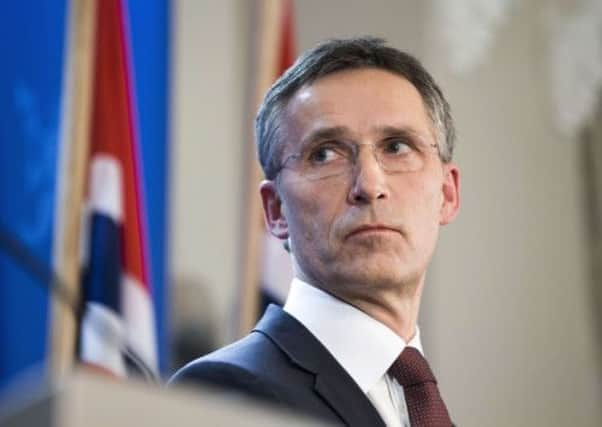Norway: Eight years of centre-left rule set to end


Despite the oil-rich nation’s strong economy and low unemployment, prime minister Jens Stoltenberg’s centre-left grouping has been trailing in the polls for months.
The Conservative party, headed by Erna Solberg, has seen a surge in support amid pledges to increase the availability of private health care and cut taxes on assets over £90,000.
Advertisement
Hide AdAdvertisement
Hide AdAs she voted, Ms Solberg – nicknamed “Iron Erna” for her tough stances when she was in the cabinet between 2001 and 2005 – told reporters: “We need more legs to stand on in the economy, not just oil.”
She added: “We are a liberal-conservative party, we do not make revolutions. This will be a road of small steps.”
The Conservatives have said for the first time that they are prepared to form a coalition with the anti-immigration Progress party, which appears to have lost support since 2009 but is still the third largest party in Norway. They may also seek the support of the Liberal party and Christian Democrats. The latter two parties are not keen on teaming up with Progress, objecting to its policies on immigration and spending, raising the prospect that Ms Solberg may lead a minority cabinet.
Elisabeth Ivarsflaten, a political science professor at the University of Bergen, said: “A majority government isn’t necessarily the norm in Norway, and it’s slightly more likely we’ll get a minority.
“Norway has had many minority governments’ and they tend to work.”
Oslo voter Geir Henriksen, 36, said: “To me, this vote is about using our fortunes better. Public service, like health and elderly care, is not getting any better even as the government spends more and more. We need to rebalance government.”
The discovery of oil and gas in Norway’s waters in the 1960s turned the Scandinavian nation into one of the richest in the world, with a strong welfare system and a high living standard. The oil helped Norway withstand Europe’s financial crisis and has allowed it to create an investment fund for the country’s future that is now worth about £475 billion.
One political expert said Mr Stoltenberg’s main problem was simply that he had been in power for so long.
Advertisement
Hide AdAdvertisement
Hide Ad“I call it government fatigue. The Labour coalition has been in power for eight years and one would expect that some voters now think it is time for a change,” Frank Aarebrot, professor of comparative politics at the University of Bergen, said.
This is the first parliamentary election since Anders Breivik killed 77 people in 2011. Thirty-three survivors of the massacre on Utoya island, mostly teenage members of the Labour party’s youth wing, are seeking national office in the election.
Mr Stoltenberg was admired for his calm demeanour after the 2011 terror acts and there was a short-lived boost in support for his party.
But last year, a report criticising Norwegian police for a litany of institutional failures before and during the attacks dented his government’s prestige.